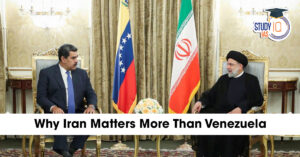Table of Contents
Historical Context and Ideological Roots
- Left-wing insurgencies are grounded in ideologies such as Marxism-Leninism and Maoism, viewing the capitalist state as an instrument of oppression.
- Armed struggle has traditionally been a central strategy for revolutionary groups like Nepal’s Maoists, El Salvador’s FMLN, and India’s CPI (Maoist).
Challenges of Prolonged Insurgencies
- Resource Intensity: Insurgencies require sustained resources and popular support.
- Public Sentiment: Prolonged violence often alienates civilian populations, weakening support.
- State Counterinsurgency: Many insurgencies face powerful state retaliation, making armed resistance unsustainable.
Key Examples of Transition
Nepal’s Maoist Insurgency (1996-2006)
- Initiated a civil war to dismantle the monarchy and establish a people’s republic.
- Signed the Comprehensive Peace Accord in 2006, allowing integration into mainstream politics.
- Played a key role in Nepal’s transformation into a federal democratic republic in 2008.
El Salvador’s FMLN (1980s-1992)
- A coalition of Marxist-Leninist guerrilla groups fought the U.S.-backed government.
- Transitioned to a political party after the 1992 peace accords.
- Won national elections, shifting from revolutionary Marxism to democratic socialism.
India’s Maoist Factions
- CPI (Maoist) continues armed struggle, particularly in rural areas, adhering to Mao’s “protracted people’s war.”
- CPI (M-L) Liberation abandoned violence in the 1980s, contesting elections and becoming a legitimate political entity.
Sri Lanka’s JVP
- Led two violent uprisings in 1971 and the 1980s, both brutally suppressed.
- Shifted to parliamentary politics in the 1990s, advocating for economic reform, social justice, and workers’ rights.
Factors Driving the Transition
- Strategic Realism: Insurgencies face diminishing resources and public support.
- Peace accords in Nepal and El Salvador allowed political influence without violence.
- Public Sentiment: Civilian casualties and prolonged hardship erode support for armed resistance.
- International Pressure: Global condemnation of insurgencies and mediation by actors like the United Nations (e.g., in El Salvador) encourage peaceful engagement.
- Ideological Evolution: Insurgent groups adapt revolutionary doctrines to fit democratic frameworks, maintaining core values of social and economic justice.
Responses and Implications
- Legitimacy in Democracy: Transitioning to political participation enhances trust in democratic processes.
- Former insurgent groups can address the injustices that motivated their struggles.
- Challenges in Governance: Groups must balance revolutionary ideals with practical demands of governance.
- They face public scepticism about their commitment to democratic norms.
- Evolving Ideologies: Parliamentary participation is seen as an adaptation to modern realities, reforming the state from within.
- Inclusive Governance: Examples like Nepal’s Maoists show how these groups prioritize marginalized communities, fostering inclusivity.


 Why Iran Matters More Than Venezuela: En...
Why Iran Matters More Than Venezuela: En...
 Nuclear Deterrence in 21st Century: Is I...
Nuclear Deterrence in 21st Century: Is I...
 Denotified Tribes and 2027 Census: Deman...
Denotified Tribes and 2027 Census: Deman...

























